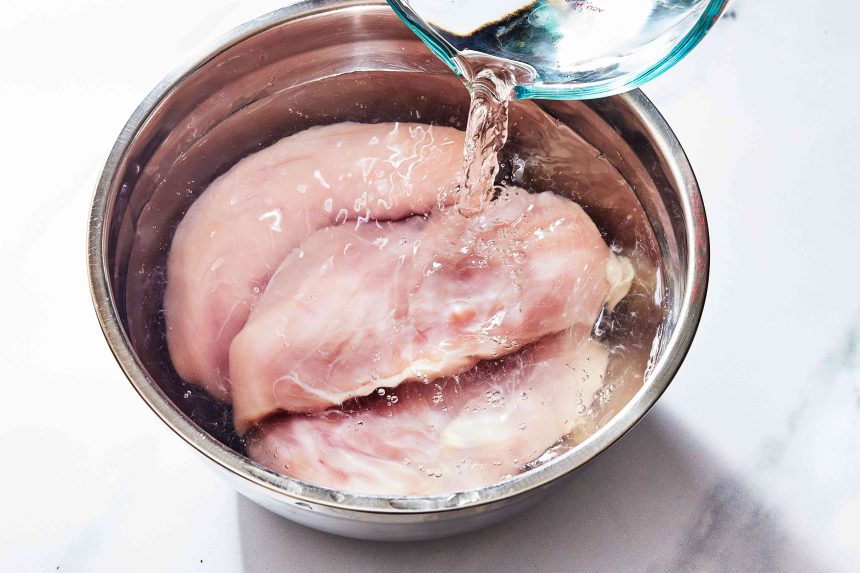Whether or not you should rinse chicken before cooking has been long debated, and you might have your own ideas about whether or not it’s necessary. Some prefer to rinse chicken before cooking it, to remove any contaminants or undesirable bits from the chicken before using, while others argue that this practice might do more harm than good.
Here, we’ll talk about how rinsing chicken can impact safety, flavor, and cooking methods—and why it might not always be the best approach.
Getty Images
Why Some People Rinse Chicken Before Cooking
People rinse chicken before cooking for various reasons, often driven by tradition or ideas about cleanliness and preparation. Let’s explore some of the common reasons:
- Remove bacteria and contaminants: Many believe rinsing helps wash away harmful bacteria like salmonella or campylobacter.
- Improve odor: Rinsing is thought to help eliminate any unpleasant smells associated with raw chicken, giving the impression of fresher meat.
- Clean the skin: People often rinse chicken to remove visible impurities such as blood, feathers, or other impurities before cooking.
- Prepare for cooking: Some believe rinsing ensures the chicken cooks more evenly or enhances the texture of the skin, especially when roasting or grilling.
- Cultural and personal habits: For some, rinsing chicken is simply a habit passed down through family traditions or personal preference, viewed as an essential step in the cooking process.
The Truth About Rinsing Chicken
While many people rinse chicken before cooking for a variety of reasons, it’s important to separate fact from misconception. Here’s the truth behind those motivations:
- Remove bacteria: Rinsing is not an effective way to remove bacteria like salmonella or campylobacter from chicken. Cooking to the proper internal temperature is the only reliable method to kill harmful bacteria. In fact, rinsing can increase the risk of contamination by spreading bacteria through splashing onto kitchen surfaces, utensils, or nearby foods.
- Eliminate odors: While rinsing may temporarily reduce unpleasant smells, it doesn’t address the underlying cause, which could be spoilage or bacteria. If chicken has a strong, foul odor, it may be unsafe to eat and should not be rinsed to mask the issue.
- Remove impurities: Rinsing can dislodge visual impurities like blood or feathers, but the risks outweigh the benefits due to the potential spread of bacteria. Instead, use a paper towel to blot the chicken or a knife or tweezers to remove any remaining feathers or bits.
- Improve the texture: Rinsing does not improve the chicken’s texture or help it cook more evenly. On the contrary, excess moisture from rinsing can prevent the skin from crisping up during roasting or grilling, leading to less desirable results.
Getty Images
Best Practices for Handling Raw Chicken
When it comes to handling raw chicken, maintaining cleanliness is essential to reduce the risk of foodborne illness:
- Practice proper hygiene: Always wash your hands thoroughly with soap and warm water before and after handling raw chicken to prevent the spread of harmful bacteria.
- Sanitize surfaces and tools: Clean cutting boards, knives, and utensils thoroughly with hot, soapy water. Sanitize countertops and any other surfaces that may have come into contact with raw chicken to ensure a safe cooking environment.
- Avoiding rinsing: The CDC and USDA advise against rinsing chicken due to risk of cross contamination.
- Storing chicken safely: To store raw chicken safely, keep it in its original packaging or transfer to an airtight container to prevent leaks. Place on the lowest shelf of the refrigerator, keeping it below 40°F for up to two days. You can also freeze the chicken for up to two months. Thaw overnight in the refrigerator before using.








